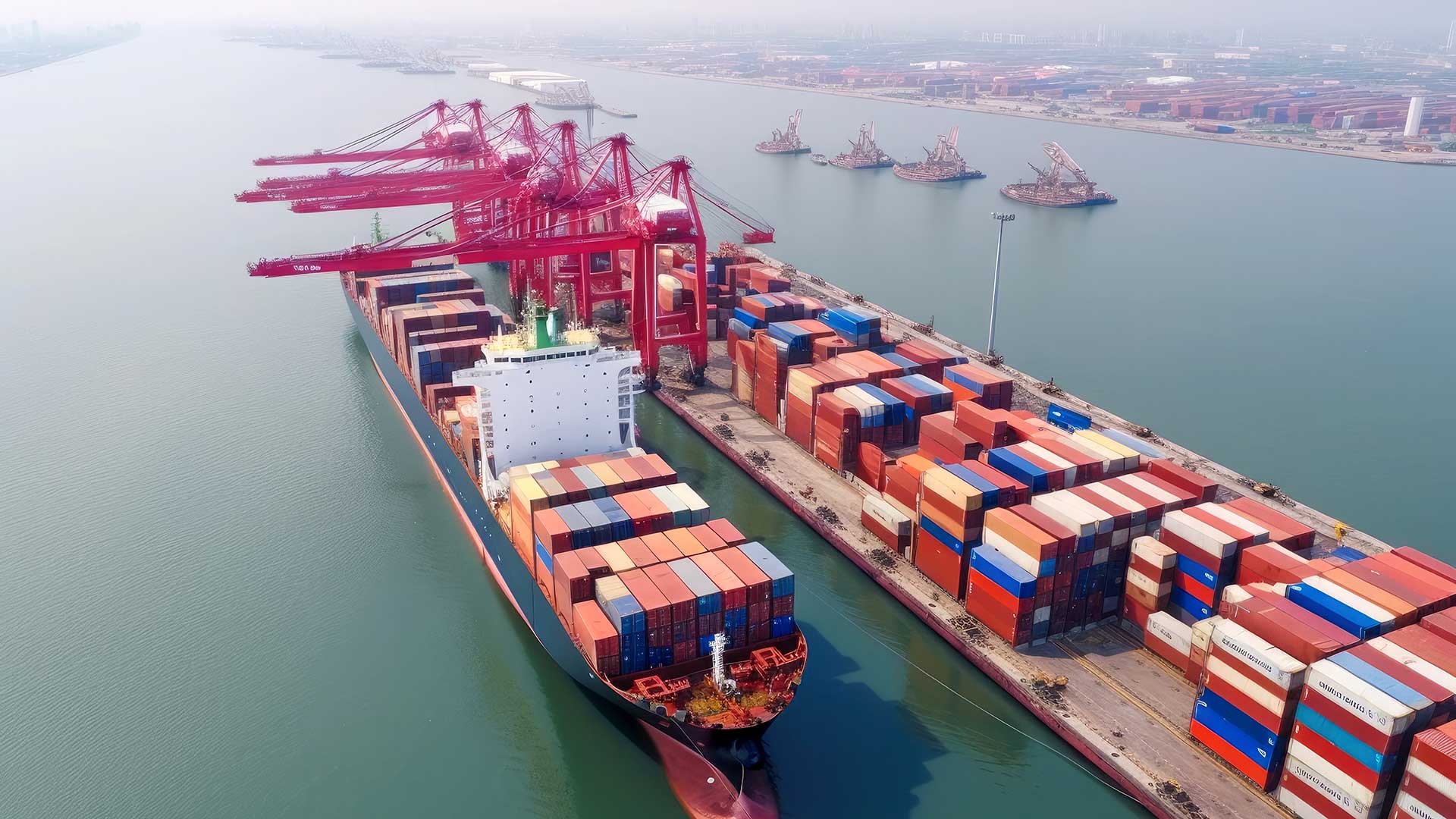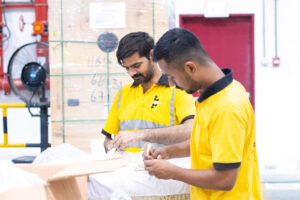Logistics Infrastructure Development in UAE: Trends and Future Prospects

Aiming to become one of the world’s leading logistics hubs, the UAE has made extraordinary strides in developing its logistics infrastructure. The country’s geographical advantage, combined with visionary investments and policy initiatives, has positioned it as a central player in global supply chains.
Let’s explore below the key trends in logistics infrastructure development in the UAE that highlight the nation’s emphasis on port expansion, airport logistics, digitalization, sustainability, and multimodal connectivity. We’ll also delve into the promising prospects that are likely to reinforce the UAE’s role in global logistics.
#1 Expansion of Port and Maritime Facilities
The UAE is home to some of the world’s busiest ports, like Jebel Ali Port in Dubai and Khalifa Port in Abu Dhabi. These ports have been expanding to increase capacity and enhance efficiency, supporting the UAE’s role as a transshipment and distribution hub for Europe, Asia, and Africa.
Investments are also focused on smart port technologies and automation to speed up processes, reduce costs, and increase security in operations.
#2 Strengthening Air Freight Capacity
The UAE’s strategic investment in air cargo infrastructure leverages its location as a transit point between the East and West. Dubai International Airport (DXB) and Al Maktoum International Airport (DWC) rank among the busiest for cargo, with plans to further expand DWC to become one of the world’s largest airports for freight.
Carriers like Emirates SkyCargo and Etihad Cargo are increasing their capacity for specialized cargo, such as pharmaceuticals, fresh produce, and e-commerce, by building cold-chain facilities and automated sorting systems.
#3 Free Zones and Special Economic Zones (SEZs)
The UAE has established free zones like Jebel Ali Free Zone (JAFZA) and Khalifa Industrial Zone Abu Dhabi (KIZAD), offering tax incentives, streamlined customs procedures, and advanced infrastructure. These zones provide warehousing and distribution services, drawing logistics and manufacturing companies from around the world.
Newer free zones, such as Dubai South near Al Maktoum Airport, focus on e-commerce logistics, facilitating rapid regional distribution and helping retailers manage the last mile. The rise of these specialized zones is pivotal in strengthening the UAE’s logistics offerings in an increasingly digital economy.
#4 Digital Transformation and Smart Logistics
The UAE has embraced digitalization in logistics, focusing on blockchain for customs (e.g., Dubai’s Digital Silk Road project) and digital trade corridors with China and other major trading partners. The aim is to reduce shipping times, cut costs, and increase transparency across the logistics chain.
The adoption of AI and IoT technologies is growing to improve real-time tracking and predictive analytics, which optimizes supply chain management and enhances operational efficiency.
#5 Etihad Rail and Multimodal Logistics
The Etihad Rail project is creating a national rail network to connect key industrial areas across the UAE and integrate with the wider GCC network. This will reduce truck dependency, lower emissions, and improve cargo handling for bulk goods such as minerals and construction materials.
By connecting rail with existing ports and roadways, the UAE is creating a multimodal network that will allow seamless transport across different modes, reducing bottlenecks and enhancing supply chain resilience.
#6 Sustainability Initiatives in Logistics
Sustainability is a growing priority in the UAE’s logistics infrastructure, with goals aligned with Net Zero by 2050. Investments in electric and hybrid vehicle fleets, solar-powered warehousing, and eco-friendly ports are underway to reduce the logistics sector’s carbon footprint.Green logistics practices, such as implementing shore power for docked ships to reduce emissions and using renewable energy sources, are becoming more prevalent as the UAE attracts companies focused on environmentally friendly supply chains.
Future Prospects
Here are the other advancements to expect from the UAE’s logistics infrastructure:
- Increased Role in E-Commerce – The UAE’s infrastructure is primed for rapid e-commerce growth, with several free zones and logistics facilities dedicated to fulfilling online orders regionally.
- Focus on Emerging Markets – With shifting global trade dynamics, the UAE’s location enables it to act as a logistics hub for emerging markets in Africa and South Asia.
- Continuous Digital and Infrastructure Investment – Future infrastructure developments will likely center on smart technologies, automation, and the expansion of air and sea freight facilities, further solidifying the UAE as a top logistics hub.
Partner with a Logistics Company in the UAE that You Can Trust
The UAE’s logistics sector has a promising outlook, with its advanced infrastructure, strategic location, and commitment to innovation driving significant growth and investment in global supply chains. Hence, you can never go wrong partnering with a reputable logistics company in Dubai like Total Freight International.
For over 30 years, we have been helping our clients grow and scale their business by offering reliable and tailored services such as global freight forwarding, customs brokerage, supply chain management, Import of record / Export of record, and warehousing & distribution.
Get in touch with our experts to learn more about our 360-degree logistics solutions!
Related Blogs
-
20 July 2023 6:47AM
7 Ways Value-Added Services Can Benefit Your Business


